Mold Mitigation and Remediation
Water damage in the Minneapolis area is directly connected to mold remediation and mold mitigation. An effective water damage remediation program may minimize or eliminate the necessity for mold remediation, mold mitigation, and mold removal in your Minneapolis home or business. According to the CDC, when you experience water damage in Minneapolis, to help prevent mold mitigation and mold remediation, your should dry your home or business as quickly as possible, within 24 to 48 hours. As a result, time is not your friend. Minneapolis Water Damage Specialist 24/7 is a mold remediation and removal company that gets it.
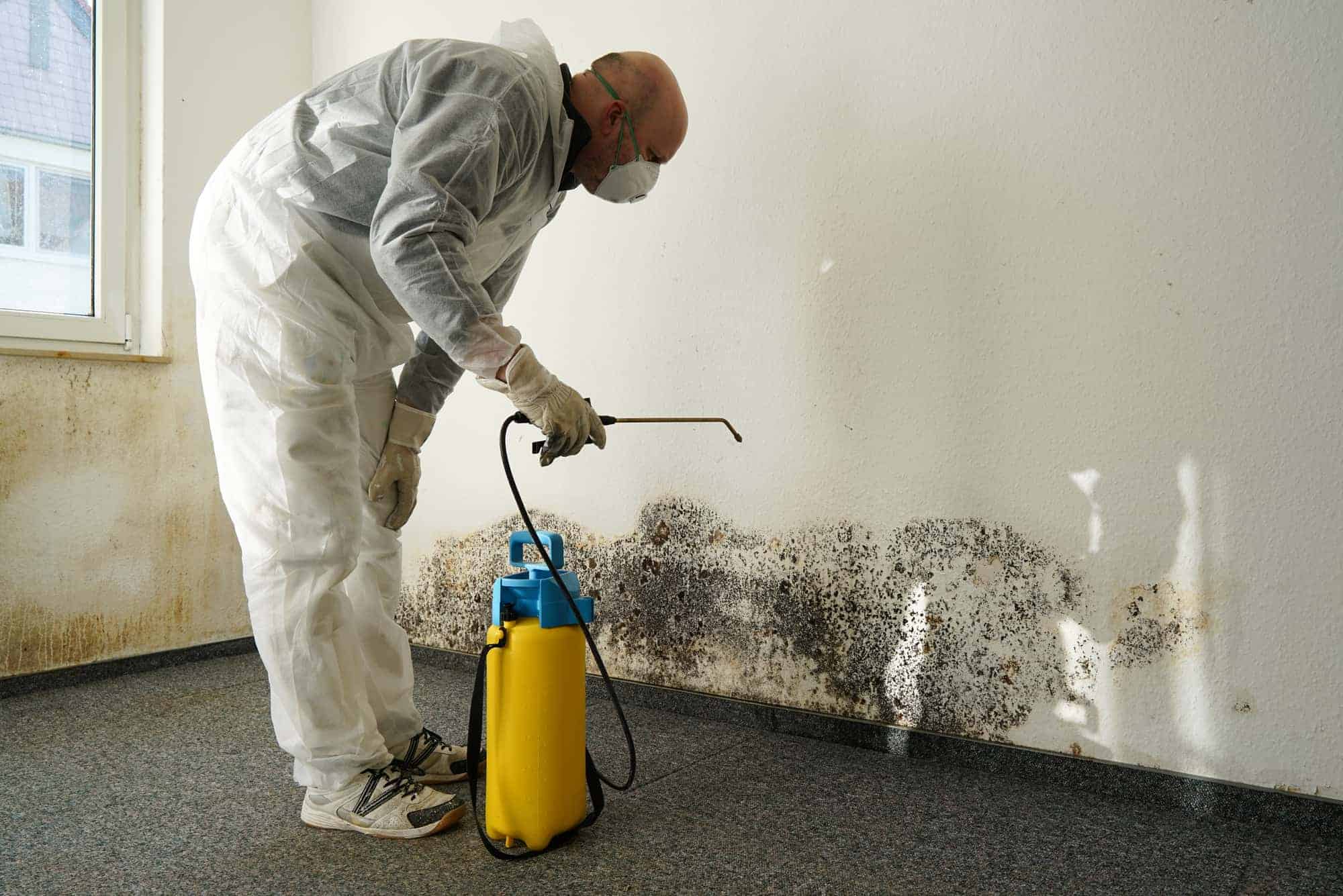
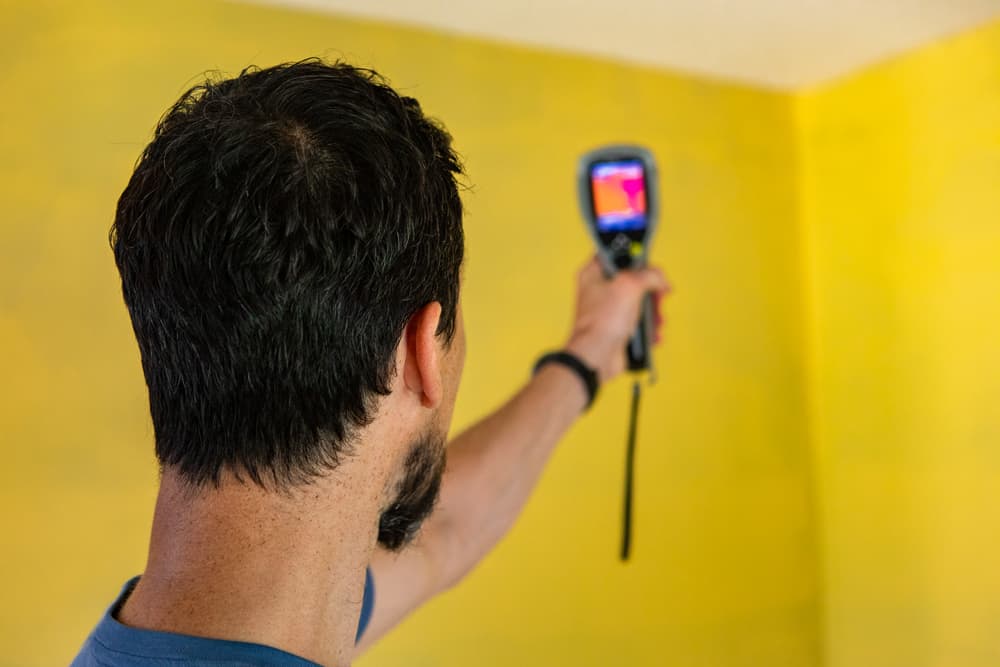
Mold Inspection Costs and Black Mold Removal
Mold inspection costs, black mold removal, and mold removal cost, in general, are typically addressed when we assess your home water damage or commercial water damage in Minneapolis. However, say you return from a vacation to discover black mold without a clear-cut reason, we are a local mold specialist and can provide a mold inspection, and a black mold removal estimate.
Regardless of how the mold is discovered or needs to be mitigated, we bring a sense of urgency to mold inspections, mold removal, and mold prevention arising from emergency water extraction in the Minneapolis area, whether it is for flood water removal services such as flood remediation and flood cleanup in Minneapolis, or sewage removal services, emergency raw sewage cleanup, and finally for basement water removal in Minneapolis.
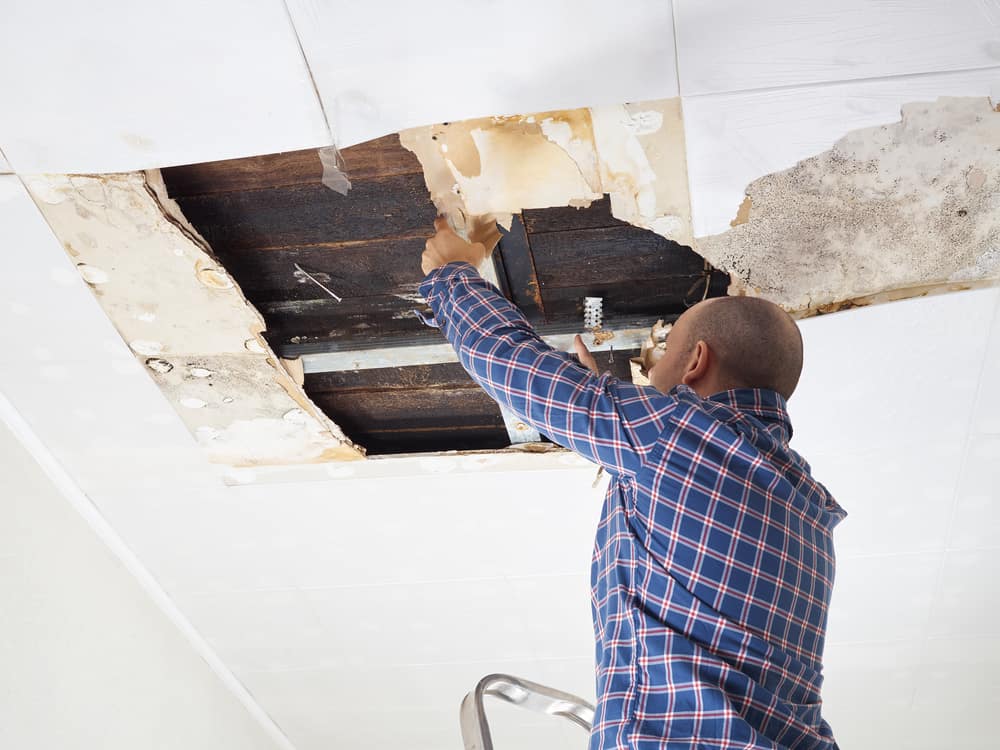
Certified Minneapolis Mold Remediation Company
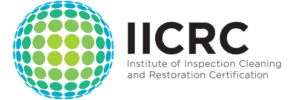 There are several water extraction companies in the Minneapolis area, but Minneapolis Water Damage Specialist 24/7 is a Minneapolis mold remediation, mold mitigation, and a certified water remediation company and water damage specialist by IICRC (Institute of Inspection Cleaning and Restoration Certification). We strictly adhere to all OSHA, EPA, CDC guidelines and regulations. Finally, in terms of qualifications, we also rigorously follow all CDC guidelines for COVID-19 and offer reactive and proactive COVID-19 disinfection services.
There are several water extraction companies in the Minneapolis area, but Minneapolis Water Damage Specialist 24/7 is a Minneapolis mold remediation, mold mitigation, and a certified water remediation company and water damage specialist by IICRC (Institute of Inspection Cleaning and Restoration Certification). We strictly adhere to all OSHA, EPA, CDC guidelines and regulations. Finally, in terms of qualifications, we also rigorously follow all CDC guidelines for COVID-19 and offer reactive and proactive COVID-19 disinfection services.
Mold Remediation Protocol for Water Damage
Mold remediation and mold mitigation are pretty much the same for home water damage and commercial water damage in Minneapolis. After water removal services, it doesn’t matter if it is frozen pipe water removal, flood water removal services such as flood remediation and flood cleanup in Minneapolis, or sewage removal services, emergency raw sewage cleanup, and basement water removal in Minneapolis, your home or business needs to be dried as quickly as possible. The next step is water damage cleanup and water damage repair. Below are the steps for mold prevention, remediation, and mitigation recommended by the CDC.
- For home water damage and commercial water damage in Minneapolis, first remove all moldy, mold debris, and water-damaged items from inside your home.
- Dig out mud and dirt from water damage cleanup areas, around all frozen pipe water removal areas, i.e., all emergency water extraction areas.
- Use a commercial wet vacuum to remove the remaining dirt during this step of water damage restoration.
- Scrub water damaged but cleanable surfaces (such as wood, tile, stone) with soapy water and a bristle brush.
- Thoroughly clean all water-damaged hard surfaces (such as flooring, molding, wood and metal furniture, countertops, and sinks) with water and dish detergent.
- Use a bleach solution of no more than 1 cup (8 ounces) household laundry bleach per 1 gallon of water to kill mold on surfaces.
- Dry surfaces quickly and thoroughly after cleaning. A commercial-grade dehumidifier and dryer should be used for the best surface drying and finish cleaning.
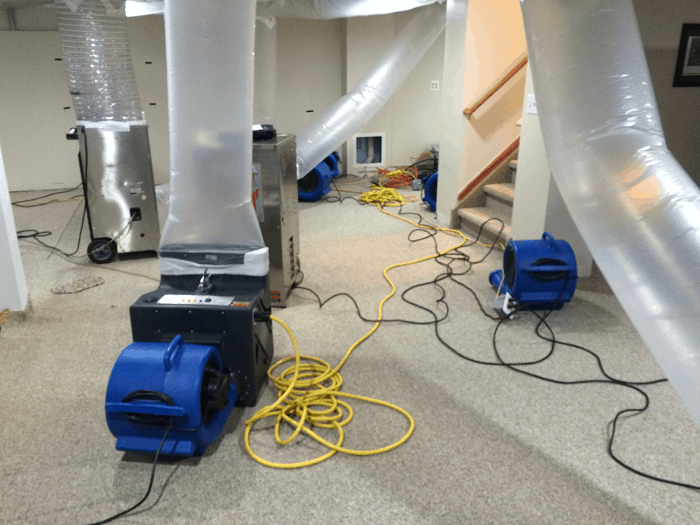
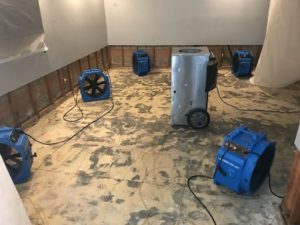
Many times drywall is stripped near the floor where water collects to kill mold spores.

Does My Insurance Cover Mold?
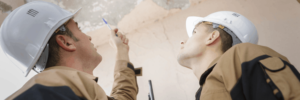 Insurance companies exclude mold coverage in standard homeowner and commercial property owner insurance policies. Like flood insurance, mold coverage must now be specifically requested, often called a “rider” for a homeowner or property owner to receive coverage in the case of mold contamination.
Insurance companies exclude mold coverage in standard homeowner and commercial property owner insurance policies. Like flood insurance, mold coverage must now be specifically requested, often called a “rider” for a homeowner or property owner to receive coverage in the case of mold contamination.
However, in most policies mold is covered if it is a direct result of a very recent “sudden and accidental” water damage claim. If you contact Minneapolis Water Damage Specialist 24/7 within 72-hours of your water damage instance, any mold that forms in that period is covered because of your water damage. The insurance company is required to cover it if it is a direct result of your recent loss.
After accessing your situation, we immediately initiate contact with your insurance to minimize any loss in time and promptly implement protocols.
Sometimes, homeowners or business owners don’t notice water damage for a variety of reasons, such as being on vacation or working from home during COVID-19. As a result, water removal services are too late, and mold remediation and mold mitigation needs are more aggressive, including stripping the walls to the studs. Regardless, Minneapolis Water Damage Specialist 24/7 is a professional restoration company that can help. For hassle-free mold mitigation and water damage repair estimate in the Minneapolis area or second opinion, contact us today at (612) 255-7799.
Frequently Asked Mold Removal Questions
Molds are common indoor air quality irritants. They can cause symptoms such as hay fever-type symptoms, itchy eyes, runny nose, wheezing, and asthma attacks. There are many different types of molds that exist all around the world. Molds need moisture in order to grow and thrive which is why it is important to be able to identify what type of mold you might have in your home or office. The first step that you should take when trying to identify if you have a mold problem is to look for visible signs of mold growth on drywall or sheet rock walls. The second step would be if you notice any unusual odors coming from your home like mustiness or earthy smells.
Mold is a type of fungus that grows in damp, humid environments. It is not always easy to determine if you have mold. Mold can lead to health problems, but it is important to take steps to control the moisture in your home or office. Mold can be found all over the world and in every region of the human body. The most common causes of mold are moisture (water leaks), excessive humidity (moisture in the air) and carpeting or fabrics that are not cleaned often enough. The most common symptoms of allergic reactions to mold are coughing, sneezing, runny nose and watery eyes.
This article will walk you through the basics of mold removal and help you decide what to do if you think you have mold in your home. It is not always necessary to hire a professional for this process. Some people are able to remove the mold themselves with just a few steps. If you're not sure, consult an expert for advice on how to handle the situation.
This question is really difficult to answer, as every type of mold requires a different approach. The easiest way to figure out if you should call a professional or not, is to take a look at the mold growth around your house or workspace. If you find any mold that has grown outside its typical habitat, it’s definitely time for an expert opinion. If you see small spots of mold on carpets, curtains or other surfaces in the home, it’s safe to call an expert for help with your mold problem.
Mold grows where moisture is present. Waterproofing your home will help to prevent mold from growing inside your home. It is important to keep all of the surfaces in your house dry. You can help control mold by keeping the humidity levels below 50%. This can be done by using a dehumidifier or ventilating outside after it rains. Mold grows where moisture is present. Waterproofing your home will help to prevent mold from growing inside your home.
A mold inspection is a vital part of a home or business owner’s responsibility. It can help identify the presence of mold and other possible problems that may not be visible to the naked eye. A home or commercial building inspector will come assess your property and provide a detailed report on the conditions, any issues that need attention, and what should be done if remediation needs to take place. Mold is never good for anyone’s health, which is why it’s important to get an expert opinion about their presence in your home.
Inspectors are looking for any of the following three items: 1) Presence of moisture 2) Presence of mold 3) Presence of airborne particles
A mold inspection is a detailed examination of a home or building to determine the presence and types of mold present. A certified inspector will use a variety of methods, including taking samples from different areas, to identify the type and extent of mold growth. Mold inspections are done for various reasons. Some people purchase an inspection before they buy or rent a property, believing it will provide them with more information about the property’s condition. Others may want to know what is causing their allergies or illness, while others may simply want an "insurance policy" against possible future problems.

